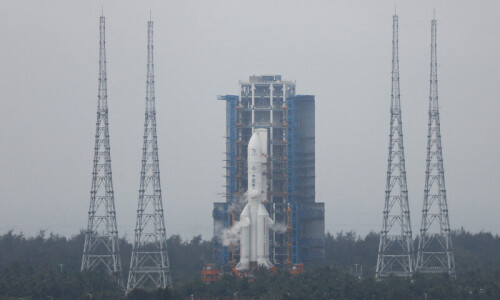The world's chemical arms watchdog on Thursday said it had confirmed Britain's findings that a nerve agent used in an attack on a former spy and his daughter in England last month originally came from Russia.
Samples tested by the Organisation for the Prohibition of Chemical Weapons (OPCW) “confirm the findings of the United Kingdom relating to the identity of the toxic chemical,” according to a summary of the Hague-based group's report released in London.
It added that “the toxic chemical was of high purity”.
In a declassified summary of its findings, however, the OPCW did not make any assessment on who carried out the March 4 attack on former double agent Sergei Skripal and his daughter Yulia in the English city of Salisbury that also injured a police officer.
Britain and allies including the United States have blamed Moscow, sparking furious denials and provoking an international row resulting in the expulsions of diplomats from all sides.
The OPCW did not name the chemical, saying that information and its structure would be in a full classified report available to signatory states of the organisation.
Britain named it as Novichok, a group of powerful and deadly chemical compounds reportedly developed by the Soviet government in the 1970s and 1980s.
Prime Minister Theresa May's government has said Russia was known to have used it, and pointed to the country's pattern of “reckless behaviour”, including the annexation of Crimea.
Russia has strongly denied any involvement, and insists it has destroyed all of its chemical weapons.
Skripal moved to Britain in a spy swap in 2010 and settled in Salisbury, and his daughter Yulia was visiting from Russia when they were poisoned, possibly on his front door.
Despite initial fears that they would not survive, Yulia Skripal was released from hospital to an undisclosed location earlier this week, while her father is said to be improving rapidly.














































